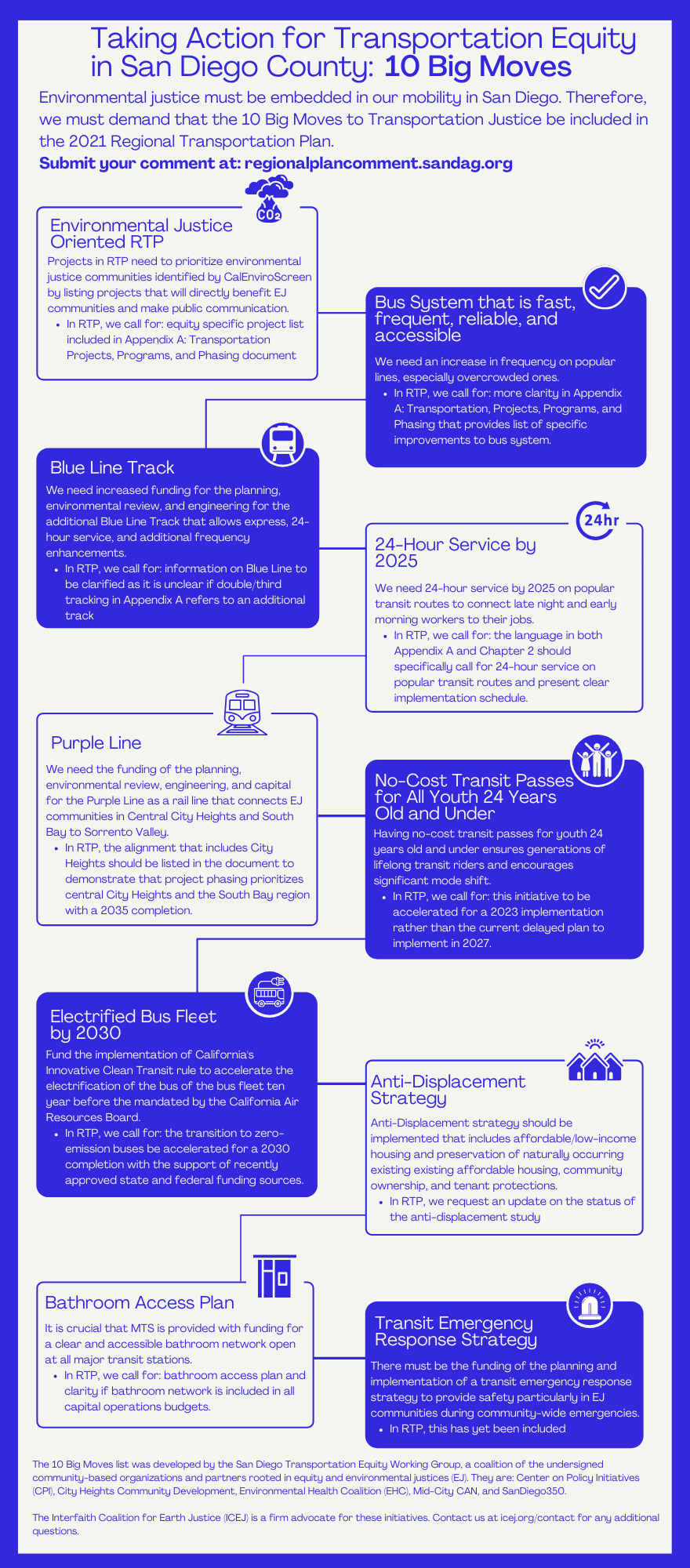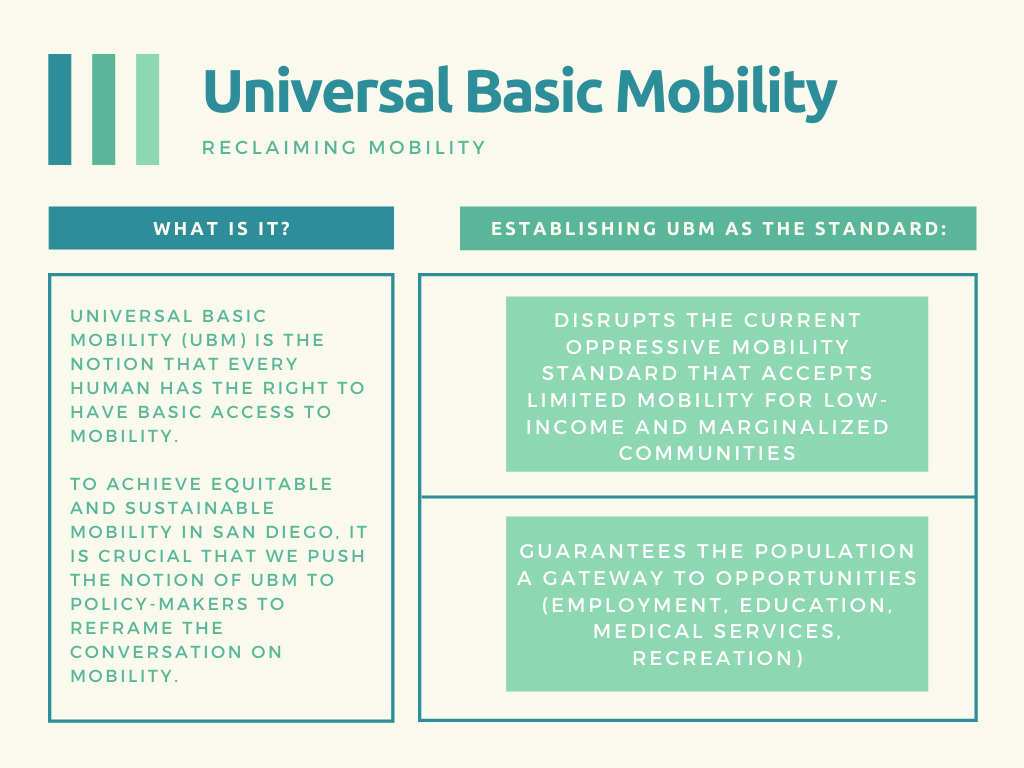How We Get There From Here:
Building an Equitable Transportation System in San Diego
A workshop for persons of faith (and everyone else!! to learn about and lobby for transportation equity), event sponsored by the Interfaith Coalition for Earth Justice, SanDiego350, and the Environmental Health Coalition on June 15th, 2021.

Why should people of faith support equitable transportation infrastructure?
As leaders and clergy from many faith traditions, we share the mandate to care and protect all of Creation, to love our neighbors, and care for those most vulnerable. We need:
Future decisions based on equity
Transportation is a social justice issue that when structured inefficiently is a detriment to those who depend on it. People in underserved communities rely on public transportation to get to their jobs, to schools, and access basic necessities.
Improved overall quality of life
More efficient transit means a decrease in time spent commuting — especially important during this time of COVID-19. Peoples’ lives are impacted with more time away from family that could have been spent towards education or other employment opportunities.
Health of communities and our environment
Reducing greenhouse gas emissions not only helps in our efforts with climate change, but also benefits the health of the people living in our communities. Increased transit will reduce single-person vehicles, reducing air pollution-induced environmental injustice in San Diego.
Check out ICEJ’s informational on ‘Why Should People of Faith Support Equitable and Sustainable Transportation?‘
Universal Basic Mobility

Part of this initiative also includes reclaiming mobility. The idea of Universal basic mobility came out from the idea of universal basic income, which means an income guaranteed to individuals by some system they are participating in as a solution to spread wealth and reduce inequity. UBM on the other hand, is the notion that every human has the right to have basic access to mobility. This means we are redefining mobility as something that is not a privilege of those with wealth, but we are emphasizing that mobility should be a right, and that the systems that we have in place do not treat it as such, and therefore it is leading to the disproportionate oppression of marginalized groups.
Transportation Plan 2021
Every four years, SANDAG prepares a regional plan which addresses a variety of important land use and socioeconomic issues, one of which being how to create an efficient and more accessible transportation system. SANDAG is anticipating the transformation of the current transportation network through the 5 Big Moves.

